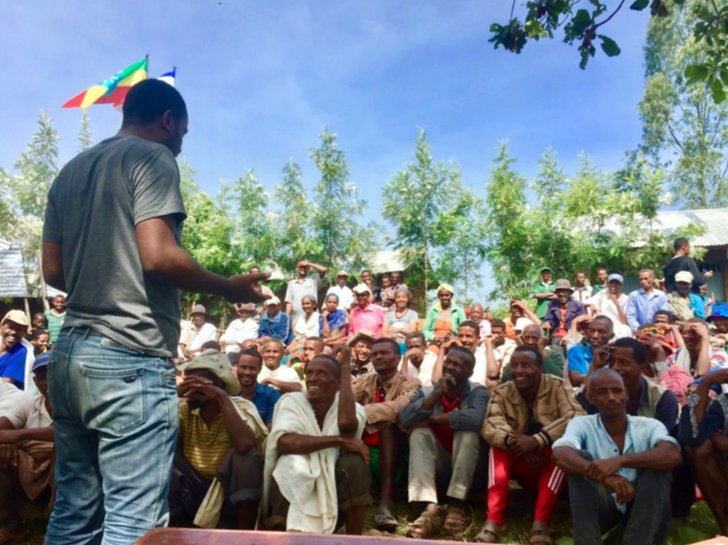Feed grasses, beans, maize, goat and sheep fattening, and dairy are just a few of the activities that are part of a Nuru farmer’s livelihood landscape. There is an inherent art to smallholder agriculture that is in delicate balance with the needs of subsistence and the limits of the enabling environment. This balance can easily become unhinged by external shocks and stressors. Smart farming, sound decision-making and best practices must represent an amalgamation of human culture and science. To be resilient the farming system must evolve with that delicate balance in mind.
Nuru Livelihoods
For the individual smallholder farmer, too much specialization in agriculture will put their livelihood at high risk. On the other hand, if the farmer diversifies into various livelihood strategies to an excessive degree, they risk being trapped in a subsistence lifestyle. They would not be afforded the opportunities of a market-based approach. In either case, farmers risk being trapped in or falling back to conditions of extreme poverty given any wave of shocks, whether
related to climate or economics. Nuru’s rural livelihood programming aims to be a partner in the scaling of smart farming by:
● Championing behavior change in agriculture
● Localizing training and extension services
● Driving adaptive programming with data
● Co-creating inclusive value chains
Nuru International encourages and enables the fusion of local, community-level, agricultural and knowledge with reputable agronomic and animal husbandry science. This fusion of art and science generated maize yield increases of 117% in two years in rural Kenya, and ensured Nuru Ethiopia farmers were 214% more profitable than non-intervention farmers in 2017. Nuru is able to generate this impact through local leaders who are members of Nuru-supported farmer organizations, and local professional staff from the country. The local country office, with support, mentorship and advice from Nuru International, makes the final decisions in regards to the implemented activities. These activities will be further detailed in a series of posts intended to distill Nuru’s approach to rural livelihood development and invite collaboration from all interested parties.
For more information on how Nuru International develops the capacity that lays the foundation for locally-led country projects, please follow this link here.


